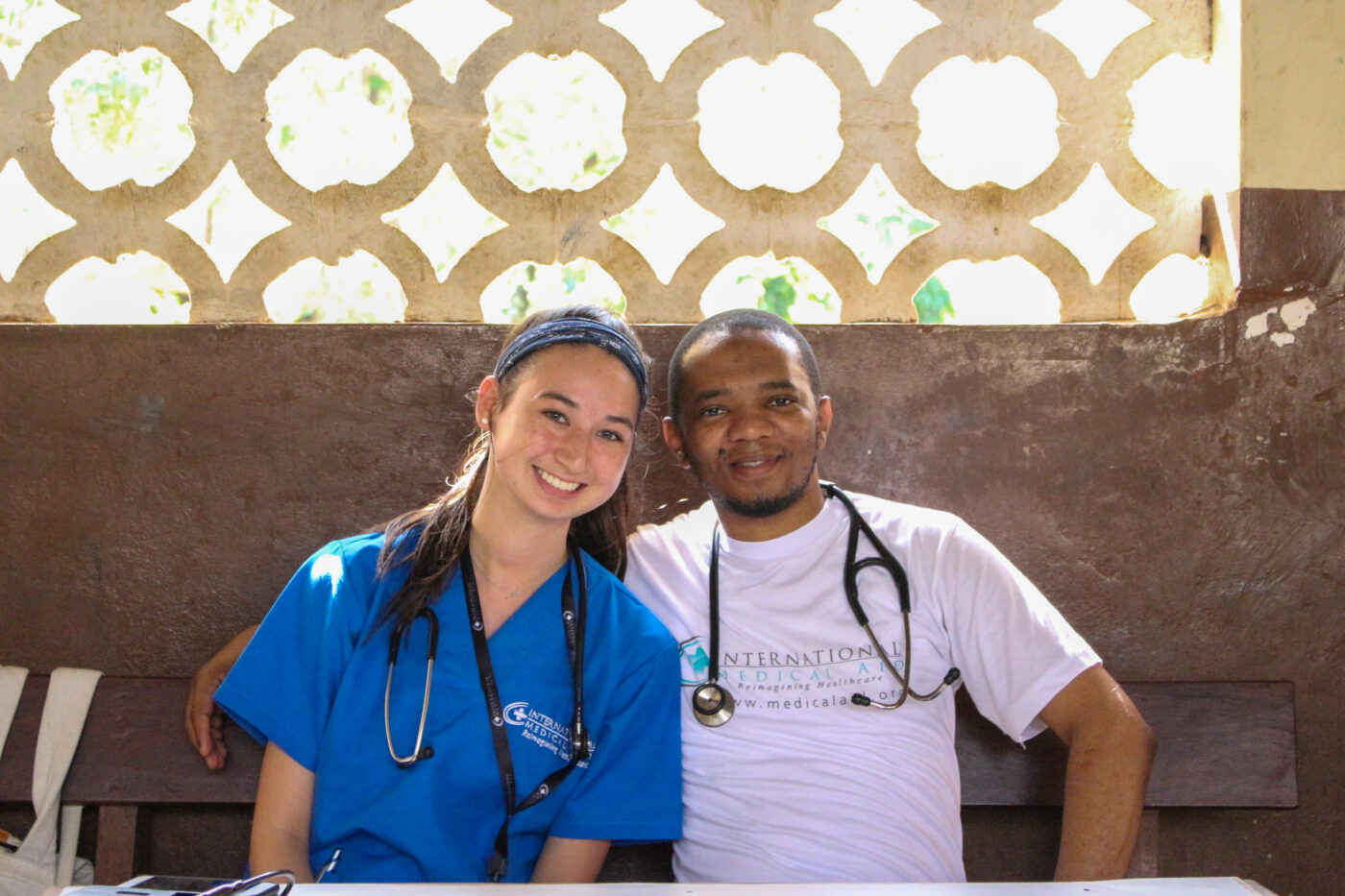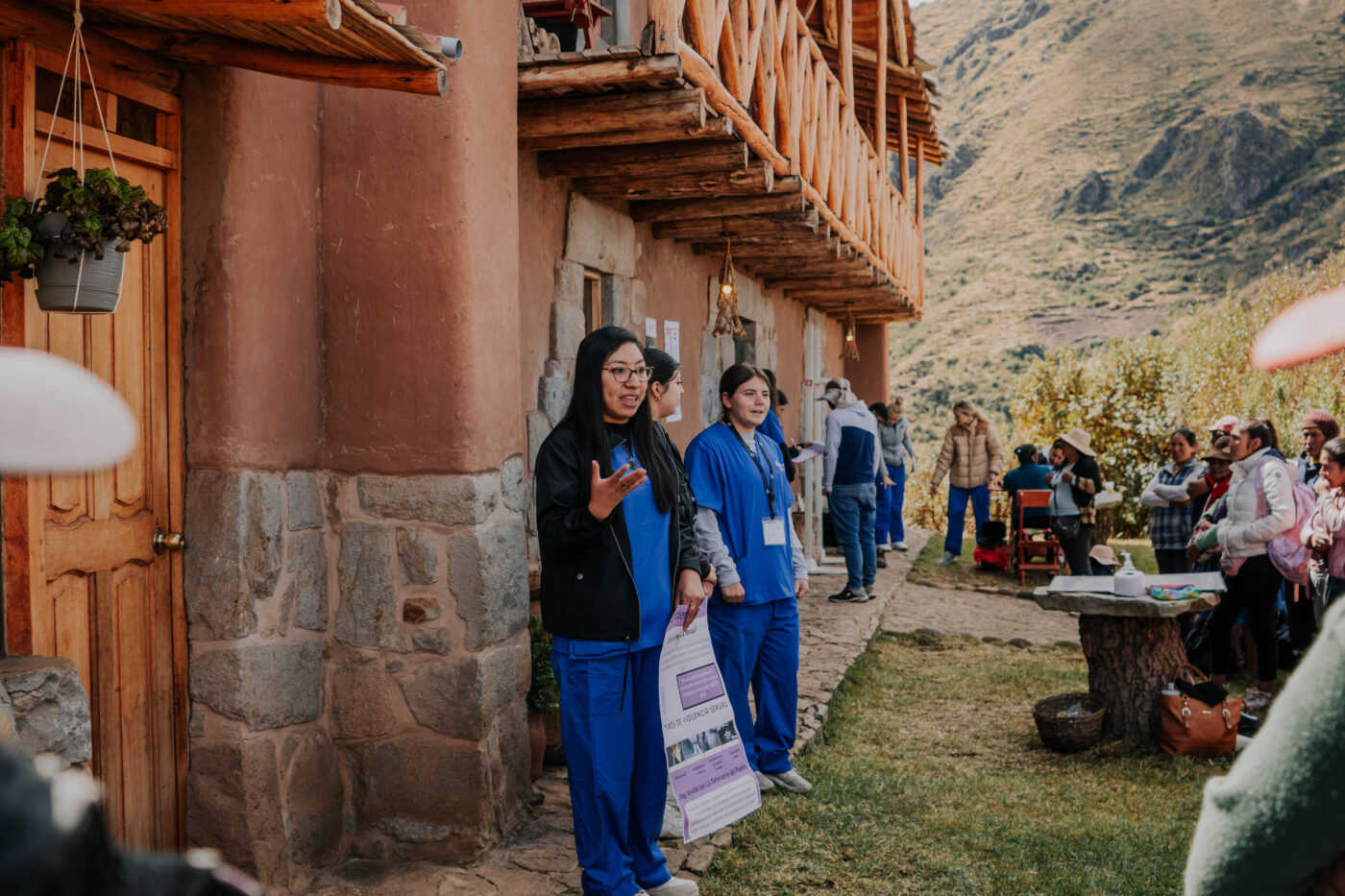The process of medical school admissions is continually evolving, shaped not only by technological advancements but also by the shifting expectations of admissions committees. Today, it’s no longer enough to merely maintain strong grades, accumulate stellar letters of recommendation, and showcase volunteer or research experiences. Your digital presence—particularly on social media—can have a substantial impact on how you are perceived as a prospective medical student.
Medical School Admissions Committees, while still focused on traditional metrics like GPA and MCAT scores, are also increasingly aware that each applicant has an online life. From professional networks like LinkedIn to personal platforms such as Instagram or Twitter, these digital spaces can reveal aspects of your character, values, and judgment that might not come through in your formal application. While some committees conduct thorough online searches, others may simply keep an eye out for red flags. Either way, it’s now common knowledge that your online persona can either reinforce your suitability for medicine or raise serious doubts.
Real-world examples abound of promising candidates sabotaging their chances by posting inappropriate photos, sharing inflammatory opinions, or inadvertently breaking patient confidentiality in a poorly considered post. There are also those who have strengthened their applications with a professional LinkedIn presence, thoughtful blog entries on medical topics, or engagement in healthcare-related forums. Knowing how to curate your social media presence effectively can make a meaningful difference in how admissions committees perceive you.
Digital Footprints and Med School Acceptance
In an era when nearly everyone leaves a trail on the internet, admissions committees have learned to be vigilant about the content their potential candidates share. Your “digital footprint” consists of all the information about you that’s available online, from your public Instagram posts to your comments on news articles and your professional LinkedIn profile. It’s the modern equivalent of a public reputation, except it’s broader and often permanent.
Medical school admissions officers may browse an applicant’s public Facebook page, stumble across Twitter posts, or review photos and captions on Instagram. Even casual remarks you’ve made can take on an outsized importance if they reveal unprofessionalism, insensitivity, or poor judgment. Stories circulate of students whose acceptance offers were rescinded when schools uncovered troubling social media content—perhaps a flippant remark about patient care, an insensitive joke, or evidence of illegal activity. Though these cases may be extreme, they underline the fact that your online presence forms part of the mosaic of information that admissions committees can use to judge your suitability for a career in medicine.
Common Social Media Pitfalls
Navigating social media can be tricky for anyone, but the stakes are higher for medical school applicants who must demonstrate maturity, professionalism, and empathy. One of the most common pitfalls is posting content that might be perceived as inappropriate or offensive—be it explicit photos, disparaging remarks, or inflammatory political rants. While medical schools appreciate well-rounded individuals with their own opinions and hobbies, a pattern of aggressive, disrespectful, or profane posts can tarnish your image.
Another frequent error is inadvertently breaching patient confidentiality. Even if you’re just a volunteer or a shadowing student, discussing patient details online—even vaguely—can raise serious red flags about your ethical judgment.
Schools need to trust that their future physicians will handle sensitive patient information with the highest degree of discretion. Finally, too many applicants neglect their privacy settings. Keeping certain parts of your personal life private can be a wise move, especially if there are old posts you wouldn’t want an admissions officer to see. Ignorance of these risks is no excuse, and failing to manage your online privacy can reflect poorly on your ability to foresee consequences and act responsibly.
Evaluating Your Online Presence
Conducting a Social Media Audit
Before you even begin applying to medical schools, it’s essential to conduct a social media audit—a thorough review of your digital footprint across platforms. Start by typing your name into search engines to see what pops up. Then methodically check your Facebook, Instagram, Twitter, YouTube, TikTok, LinkedIn, and any other platforms where you might have an account. Look closely at public photos, posts you’ve been tagged in, and content you’ve shared or commented on.
Be honest with yourself: would this content raise eyebrows if an admissions committee saw it? Posts that seemed funny or harmless in high school might not align with the professionalism expected from a future physician. Remove or hide any posts, photos, or comments that could be misinterpreted or deemed inappropriate.
Adjust your privacy settings to control what strangers can see. It’s also wise to review the social media profiles of any close friends or relatives who might tag you. Their posts can inadvertently reveal aspects of your personal life you’d prefer to keep private.
Identifying Red Flags
In the process of your social media audit, watch out for potential red flags—anything that calls into question your character or judgment. This could include:
Offensive or Discriminatory Language: Posts containing racist, sexist, homophobic, or otherwise prejudicial language are immediate red flags.
Excessive Partying or Substance Use: Photos and videos depicting alcohol or drug use may convey an impression of irresponsibility. Occasional social gatherings are normal, but repeated posts spotlighting excessive partying can be concerning.
Violations of Confidentiality: Any reference to a patient’s condition or case, even if anonymized, can suggest a lack of respect for privacy laws and ethics.
Aggressive or Inflammatory Political Rants: While everyone is entitled to political opinions, a pattern of hostile or divisive posts could cast doubt on your capacity for compassionate patient care.
Strive for consistency across all platforms. A thoroughly professional LinkedIn profile can be undermined if your Twitter feed is full of inflammatory remarks. Likewise, if your Instagram is replete with questionable images, it can overshadow your carefully curated posts elsewhere.
Building a Professional Brand
Having a clean social media presence is only the first step. The next step is to proactively cultivate a professional brand that aligns with your medical aspirations. If you haven’t already, consider creating or refining a LinkedIn profile that details your academic background, relevant work, volunteer experiences, and any leadership positions you’ve held. LinkedIn is also an excellent platform for connecting with mentors, joining professional groups, and staying informed about industry news.
Beyond LinkedIn, you can use other platforms to highlight your interest in healthcare. For instance, you might share articles related to medical breakthroughs on Twitter or document volunteer experiences on Instagram, all while maintaining a respectful, insightful tone. This professional branding serves as an extension of your CV, showing admissions committees that you take your future career seriously and that you’re already engaging with the broader medical community. Whether it’s posting about a research finding you find intriguing or reflecting on a conference you attended your online footprint can demonstrate your growth and passion for healthcare in real time.
How to Use Social Media for Professional Growth
LinkedIn for Networking and Opportunities
LinkedIn is arguably the most straightforward platform for professional networking, yet many pre-med students underutilize it. Start by filling out all relevant sections in your profile—summary, education, work or volunteer experience, skills, and recommendations. A well-crafted LinkedIn summary can serve as an elevator pitch, introducing you as a dedicated pre-medical student with specific healthcare interests.
Once your profile is polished, begin connecting with classmates, professors, healthcare professionals, and leaders of student organizations you’ve been involved in. By expanding your network, you open the door to potential research collaborations, job opportunities, and mentorships.
You can also follow pages of medical schools, hospitals, and professional organizations like the American Medical Association (AMA) to stay updated on relevant news and events. Sharing articles and writing short, thoughtful commentaries on current healthcare issues can position you as an informed, engaged future medical professional.
Twitter for Healthcare News and Thought Leadership
Twitter can be a powerful tool for staying abreast of the latest healthcare developments, as many medical journals, hospitals, and established physicians frequently share news and insights. A large community of doctors and medical students—often referred to as #MedTwitter—actively discusses topics ranging from the latest medical research to day-to-day challenges in clinics and hospitals. By following these conversations, you can learn from experienced professionals, pose questions, and even cultivate relationships with mentors or role models.
Beyond passive consumption, you can also engage by retweeting articles you find meaningful and posting your reflections. Participating in Twitter chats or threads on relevant topics helps you demonstrate your growing expertise and willingness to learn. That said, keep your tone professional and respectful. Healthy debates are common, but personal attacks or antagonistic language will immediately damage your reputation. If used wisely, Twitter can help you establish a presence as a thoughtful, informed, and conscientious future medical student.
Instagram for Personal Branding
Instagram, traditionally seen as a platform for lifestyle and leisure content, can also be harnessed for building your personal brand—provided you strike the right balance between authenticity and professionalism. For instance, you might share photos of volunteer work or medical outreach programs you’ve participated in, including those offered by International Medical Aid. These images can provide a visual narrative of your healthcare journey, illustrating your commitment to service and global awareness.
However, Instagram can easily blur the line between personal and professional. Ensure that anything you post—whether it’s a casual snapshot of your travels or a day in the life of a volunteer in a local clinic—adheres to basic standards of professionalism. Consider creating separate private and public accounts if you’d like to keep certain aspects of your personal life visible only to close friends and family.
When posting about medical experiences, especially those involving patients, be extremely cautious about privacy rules and ethical boundaries. Even seemingly benign details may inadvertently identify a patient or violate confidentiality.

Dos and Don’ts of Personal Social Media
Balancing Openness with Caution
As a future medical professional, you should aim to be relatable yet responsible on social media. It’s perfectly acceptable—even beneficial—to showcase your personality, hobbies, and passions outside of medicine. Doing so helps demonstrate that you’re a well-rounded individual with diverse interests. However, always consider your future patients and colleagues. Ask yourself: “If a potential patient stumbled across this post, would it undermine their trust in me as a doctor?”
Striking this balance often involves some self-censorship. While you might freely discuss your opinions on healthcare policies, it’s unwise to engage in heated or disrespectful debates. You can absolutely champion causes you believe in, but do so professionally, using evidence-based arguments and respectful language. Moreover, be selective about personal stories or photos you share. A certain level of privacy can shield you from unnecessary scrutiny and help maintain professional boundaries.
Showcasing Volunteer, Shadowing, and Leadership Experiences
One of the most constructive ways to use social media is to highlight your volunteer work, shadowing, leadership roles, and other extracurricular activities—particularly those related to healthcare. By posting photos or short anecdotes about a hospital volunteer shift or a community health fair you organized, you show admissions committees that you’re actively engaged in learning about patient care and public health.
If you’ve participated in International Medical Aid’s global healthcare internships, consider sharing photos of your cultural immersion and the impactful clinical work you observed. Discuss the challenges you faced and the lessons you learned about resource management, teamwork, and empathy. Use captions to convey the meaningful impact of these experiences, whether it was assisting local medical professionals, providing educational workshops in underserved communities, or simply connecting with patients from diverse cultural backgrounds. Remember to obtain appropriate permissions and stay mindful of patient confidentiality at all times.
Avoiding Violations of Patient Privacy
Whether you’re volunteering at a local clinic or participating in an international internship, you will likely encounter patients in vulnerable settings. Always remember that social media is a public space. Even a small detail—a name tag, a visible patient ID bracelet, or a recognizable room number—can compromise someone’s privacy. Violating patient confidentiality isn’t just an ethical blunder — it can have legal repercussions and severely damage your reputation.
To avoid missteps:
- Never post photos that include identifiable patient information.
- Refrain from discussing specific patient cases in a public forum—even if you think it’s anonymous.
- Obtain explicit permission if you’re sharing any patient-related content, and adhere to all HIPAA guidelines.
If in doubt, err on the side of caution. It’s far better to miss out on a compelling social media post than to risk harming a patient or jeopardizing your medical school acceptance. This careful, respectful approach will not only protect patients but also signal to admissions committees that you take confidentiality and ethics seriously—an essential quality in any future physician.
Cases in which a medical school applicant (or an admitted student) is explicitly “denied” or “dismissed” solely because of their social media presence are rarely made public. Admissions decisions are confidential, and schools typically do not issue press releases about why a particular individual was rejected. Consequently, there are few (if any) high-profile, documented cases one can point to in the public record.
However, there is both anecdotal and statistical evidence that inappropriate or unprofessional social media content can—and does—negatively affect applicants’ chances of acceptance. Below is an overview of what is known and a few illustrative (though not necessarily med-school-specific) examples:
Confidential Nature of Admissions Decisions
- Privacy of Process: Medical school admissions committees operate behind closed doors and share minimal details regarding why any applicant is denied. If a social media post factors into the decision, it is almost never publicized.
- Professional Standards: The AAMC (Association of American Medical Colleges) and many schools’ own guidelines strongly encourage professionalism in all public forums, including social media. While not always spelled out, committees may consider digital footprints to evaluate an applicant’s judgment, maturity, and ethics.
Known Precedents (Outside of Medical School)
Although not specifically about medical school, there have been documented instances in higher education that show how offensive or unprofessional social media activity can derail someone’s acceptance:
- Harvard College Rescissions (2017 & 2020)
Multiple applicants to Harvard College had their acceptance offers rescinded after school officials discovered they had posted racist, sexually explicit, or otherwise offensive memes in private Facebook groups. While these are undergraduate cases rather than medical school, they underscore that institutions do, in fact, review and act on concerning online behavior. - Kyle Kashuv’s Harvard Acceptance Revocation (2019)
Again at the undergraduate level, Harvard revoked Kyle Kashuv’s acceptance after screenshots of offensive remarks and racial slurs he had posted online came to light. This is not med-school-specific, but it highlights the principle that social media content can affect an admission offer—even after it has been extended.
These examples demonstrate that colleges (and by extension, professional programs) are willing to rescind or deny admission due to social media missteps, though they rarely go into detail about such decisions.
Anecdotal Reports Within Medical Education
- Admissions Committee Remarks: In surveys and in off-the-record anecdotes, admissions officers and faculty have acknowledged that they occasionally check applicants’ social media (often motivated by red flags in the application or letters of recommendation). Some have admitted that unprofessional or disrespectful posts can lead them to “think twice” about admitting the applicant.
- Professionalism Concerns: Medical schools increasingly emphasize “professional identity formation.” An applicant who has posted violations of patient confidentiality, harassing comments, explicit images involving substance abuse, or hateful language on social media may raise serious questions about their capacity to uphold medical ethical standards
- Residency Programs: Although slightly further down the line, residency programs have also been known to rescind or deny interviews and positions based on negative social media findings. This is more commonly documented in anecdotal stories shared on online forums (e.g., Reddit, Student Doctor Network) rather than in official statements.
Potential Reasons a Medical School Applicant Might Be Denied Over Social Media
- Discriminatory or Harassing Language: Any racist, sexist, homophobic, or otherwise hateful post can be seen as a major red flag regarding professionalism and respect for patient diversity.
- Privacy Violations: Sharing photos of patients (even if de-identified, but especially if not) or talking about patient details before one is even a medical professional suggests a lack of awareness about confidentiality.
- Evidence of Dishonesty or Misrepresentation: If an applicant’s social media profile directly contradicts information in their application—say, evidence of research fraud or lying about volunteering—the admissions committee can interpret this as a character concern.
- Flagrant Unprofessional Behavior: Posts depicting illegal drug use, extreme intoxication, or other behaviors that conflict with medical professionalism can be a red flag.
Takeaways for Applicants
- Assume Admissions Committees May Look: Whether or not every school has a formal policy, assume that your social media could be subject to review.
- Clean Up Your Online Presence: Remove or make private any posts that could be misconstrued or that are clearly unprofessional. Even older posts (e.g., from teenage years) may warrant scrutiny.
- Maintain Consistent Professionalism: Consider your social media an extension of your application. Medical schools increasingly view “online character” as part of the holistic admissions process.
- Check Privacy Settings: Even though privacy settings are not foolproof, using them wisely can reduce the likelihood that admissions committees see personal or unflattering content.
While you will not find widely publicized “smoking-gun” stories specifically about medical school applicants being denied solely because of social media, the general principle remains: Social media content can (and does) influence admissions decisions. It is safest to assume that any digital footprint is fair game for committees looking to gauge your judgment and professionalism.
International Medical Aid’s Role in Enhancing Your Profile
Application Consulting and Guidance
For students aiming to optimize their online presence and overall applications, International Medical Aid offers more than just clinical experiences. One of our specialized services includes comprehensive Medical School Application Consulting. Our consultants can help you review every aspect of your application materials, including letters of recommendation, personal statements, and medical school secondary essays. But just as importantly, we can guide you in assessing your social media footprint.
Mock interviews and thorough discussions about your digital presence often reveal hidden risks or missed opportunities. For instance, you might have an impressive portfolio of volunteer experiences that you’ve never shared online. Or you might have old posts that could be interpreted negatively by admissions officers. Our experts offer personalized advice on cleaning up your social media accounts, strategically highlighting your healthcare-related experiences, and maintaining professional boundaries—ensuring your online presence complements, rather than compromises, your application.
Global Healthcare Internships
When it comes to making your social media channels stand out, few experiences are as informing and life-changing as International Medical Aid’s Global Healthcare Internships. Our programs place aspiring healthcare professionals in real-world clinical settings abroad, often in resource-scarce regions. The exposure not only broadens your perspective but also provides captivating content for your social media channels—if handled ethically.
You might, for example, share a thoughtful post about the differences in healthcare systems between the host country and your home country. Or you could discuss your emotional journey as you witnessed the challenges faced by patients who lack basic medical resources. Whether you’re posting a photo of a rural clinic or a reflective note on cultural humility, these experiences underscore your dedication to global health. Just remember to exercise proper caution with patient privacy and local regulations.
Highlighting your Global Healthcare Internship responsibly can demonstrate to admissions committees that you’re both globally aware and ethically conscientious—traits that are increasingly valuable in modern medicine.
Adventure Programs and Cultural Immersion
International Medical Aid’s Adventure Programs blend cultural exploration with service, giving you a chance to develop leadership skills, teamwork, and personal resilience in new healthcare environments. When shared thoughtfully online, such experiences can become a compelling part of your personal brand. Imagine posting about a trek to a remote village where you delivered basic healthcare education or discussing the impact of living with a host family and learning their language.
These immersion programs often push participants out of their comfort zones, creating memorable stories that resonate with medical school admissions committees. If you choose to post about your adventures, do so with a reflective lens. It’s not just about the scenic photos, but about showcasing how these experiences shaped your worldview, deepened your compassion for marginalized communities, and sharpened your resolve to serve as a physician. By integrating these insights into your social media narrative, you reveal a dimension of character that spreadsheets of grades and activities can’t fully capture.
Final Thoughts
Summarizing Key Social Media Strategies
As you approach the medical school application process, remember that your social media presence can be an influential factor—either propelling you forward or creating unnecessary roadblocks. The key strategies include:
Conducting a thorough social media audit to identify and remove or hide questionable content.
Maintaining consistent professionalism across all platforms, from LinkedIn to Twitter.
Showcasing relevant experiences—such as volunteering, shadowing, and global internships—in a manner that highlights your passion and integrity.
Avoiding any breach of patient confidentiality by adhering to ethical guidelines and obtaining appropriate permissions.
Cultivating a personal brand that aligns with your aspiration to become a compassionate, well-rounded physician.
By following these guidelines, you can convert your social media channels into valuable extensions of your CV—reinforcing the qualities and experiences that make you a strong candidate.
Maintaining a Consistent, Professional Brand
A physician’s reputation rests not only on clinical skills but also on integrity, empathy, and accountability. In today’s interconnected world, these qualities are often demonstrated—or undermined—by our online actions. Think of your social media channels as living documents of your growth. If used wisely, they can illustrate the very qualities that make you an appealing medical school candidate: curiosity, altruism, cultural competence, and a commitment to lifelong learning.
A single controversial or poorly considered post can overshadow years of thoughtful engagement. Maintain vigilance by routinely reviewing your profiles and adjusting privacy settings as necessary. Seek feedback from mentors or colleagues, and be open to constructive criticism about how you present yourself online. Above all, remain true to your core values and aspirations. With a deliberate, thoughtful approach, your social media presence can bolster your candidacy and set the stage for a successful journey through medical school and beyond.





